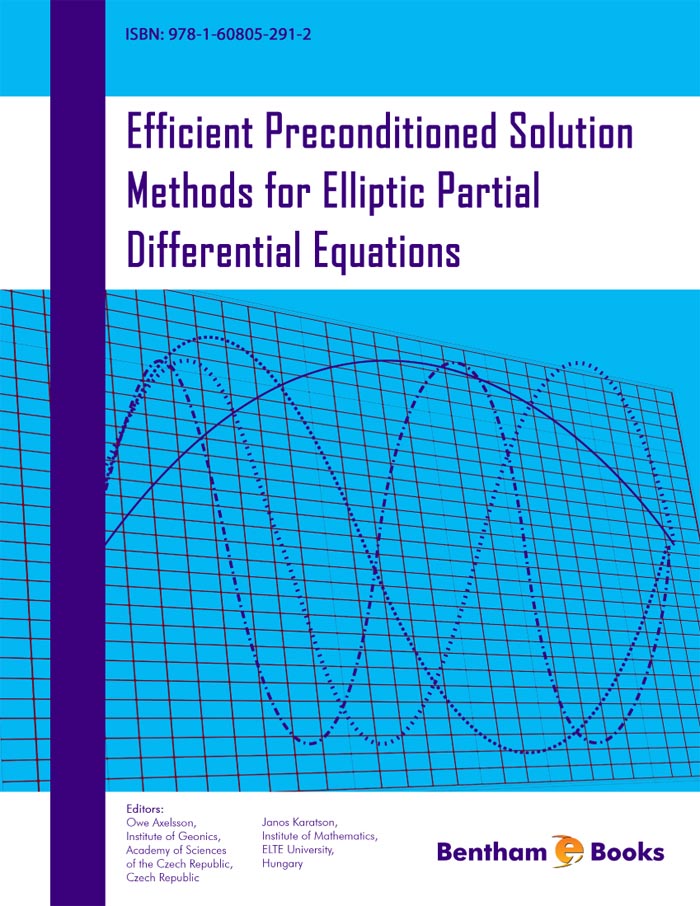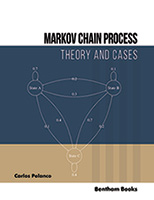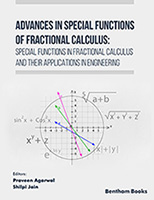The present book is a collection of chapters written by outstanding specialists, and is devoted to one of the most challenging topics of contemporary numerical mathematics. The topic – development of efficient preconditioners and solution methods for (discretized) elliptic partial differential equations – is crucial for the mathematical modelling of complex physical and other processes in most branches of science and engineering.
Efficient solution methods usually arise as a combination of a suitable iterative technique and an efficient preconditioner, which is typically problem specific, using a proper approximation to the solved problem with further attributes as cheap actions with it, a possibility of parallel implementation, numerical and parallel scalability and robustness with respect to the problem parameters. The development of preconditioners has now its own history starting from matrix splittings, diagonal scaling and incomplete factorization for model elliptic problems and continuing with multigrid and multilevel methods, approximate inverses, domain decomposition methods and other approaches to the solution of complicated elliptic problems discretized by the finite element or other discretization methods. A substantial progress in the field of preconditioners has been achieved, but at the same time many new questions and challenges have arisen, and this is why the research is even more intensive nowadays than it was previously.
The present book covers many topics of the contemporary research in the field of efficient preconditioners, namely:
Chapter 1, written by P. Boyanova and S. Margenov, concerns the Algebraic Multilevel Iterative (AMLI) methods first introduced by Axelsson and Vassilevski. The paper overviews the methods with a special care of efficiency and robustness as well as application to both elliptic and parabolic problems discretized by either conforming or nonconforming finite element methods.
Chapter 2 by Z.-H. Cao concerns efficient preconditioning of saddle point systems, which is the timely topic appearing also in further chapters. The paper examines several preconditioners arising from either factorization or augmentation of saddle point systems with a careful examination of spectra and structure of the preconditioned matrices.
Also Chapter 3 by P. Krzyzanowski considers preconditioners for saddle point systems with an emphasis on construction of efficient block preconditioners scalable with respect to the mesh size.
Chapter 4 by K.-A. Mardal and R.Winther discusses a general approach to the construction of preconditioners, which explains scalable properties of preconditioners and can be used for the construction of new ones. It also provides examples illustrating the theory.
Chapter 5 by T. M. Austin, M. Brezina, T. A. Manteuffel and J. Ruge is devoted to preconditioning of systems arising from high order (p-version) FEM. A new procedure is described and tested, which constructs a sparse approximation to the FEM matrix by solving local eigenvalue and least-squares problems and then define the preconditioner by AMG approximation of the inverse of this sparse matrix.
Chapter 6 by J. Brandts, S. Korotov and M. Křížek is an exception as it is not directly devoted to the preconditioners but to tetrahedral finite element partitions. Nevertheless, these results are important for the analysis of the finite element systems, mesh refinements and also e.g. AMLI type preconditioners depending on the angle between a coarse grid space and its hierarchic completion.
Finally, Chapter 7 by R.H.W. Hoppe, X. Xu and H. Chen considers local multigrid methods applied to complicated problems from electrical engineering and acoustic.
Generally, the book provides a lot of information on recent achievements in several fields of the development of efficient preconditioners. The book appears also thanks to the publisher’s understanding of the importance of such a volume and to the effort of Owe Axelsson and János Karátson, who made a selection and careful edition of the contributions. I hope that the readers appreciate this book providing an excellent overview of many new results and representing a successful joint work of authors, editors, reviewers and the publisher.
Radim Blaheta
7 November 2010
Institute of Geonics, Academy of Sciences of the Czech Republic
Studentska 1768, 708 00, Ostrava-Poruba, Czech Republic





